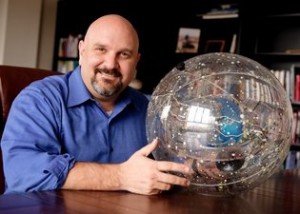Timothy F. Slater
Timothy F. Slater, Ph.D., is a professor at the University of Wyoming where he holds the Wyoming Excellence in Higher Education Endowed Chair for Science Education. At the University of Wyoming, he and his graduate students conduct education research on the teaching science. He is a senior...
show more
Timothy F. Slater, Ph.D., is a professor at the University of Wyoming where he holds the Wyoming Excellence in Higher Education Endowed Chair for Science Education. At the University of Wyoming, he and his graduate students conduct education research on the teaching science. He is a senior scientist at the CAPER Center for Astronomy & Physics Education Research where his research focuses on student conceptual understanding in formal and informal learning environments, inquiry-based curriculum development, and authentic assessment strategies, with a particular emphasis on non-science majors and pre-service teachers. Prior to joining the faculty at the University of Wyoming, Dr. Slater was a tenured professor in the Astronomy Department at the University of Arizona where he built the first Ph.D. program in astronomy education research. Professor Slater earned his Ph.D. at the University of South Carolina in geophysics and his MS from Clemson University in astrophysics. He holds two bachelors' degrees from Kansas State University, one in science education and one in physical science. Professor Slater has been the elected education officer for the American Astronomical Society, an elected member of the Board of Directors for the Astronomical Society of the Pacific, an elected councilor at large for the Society of College Science Teachers, served on the Editorial Board of the Astronomy Education Review, and has served multiple terms as chairman of the Astronomy Education Committee of the American Association of Physics Teachers. He represented the United States as the initial US National Chairman of the 2009 International Year of Astronomy. He is an author on nearly 100 articles and books, winner of numerous awards, and is frequently an invited speaker on improving teaching of science through educational research and improving teacher education and the popularization of science and astronomy.
show less

